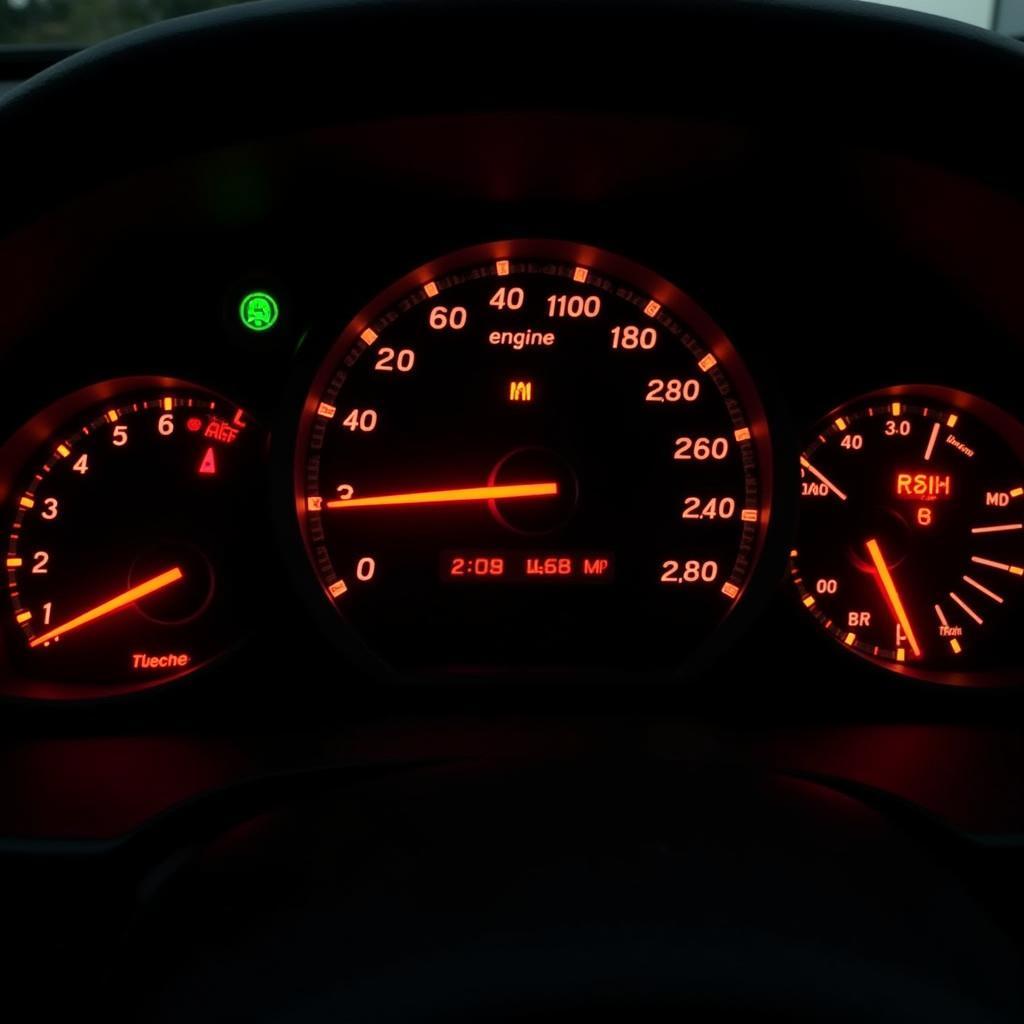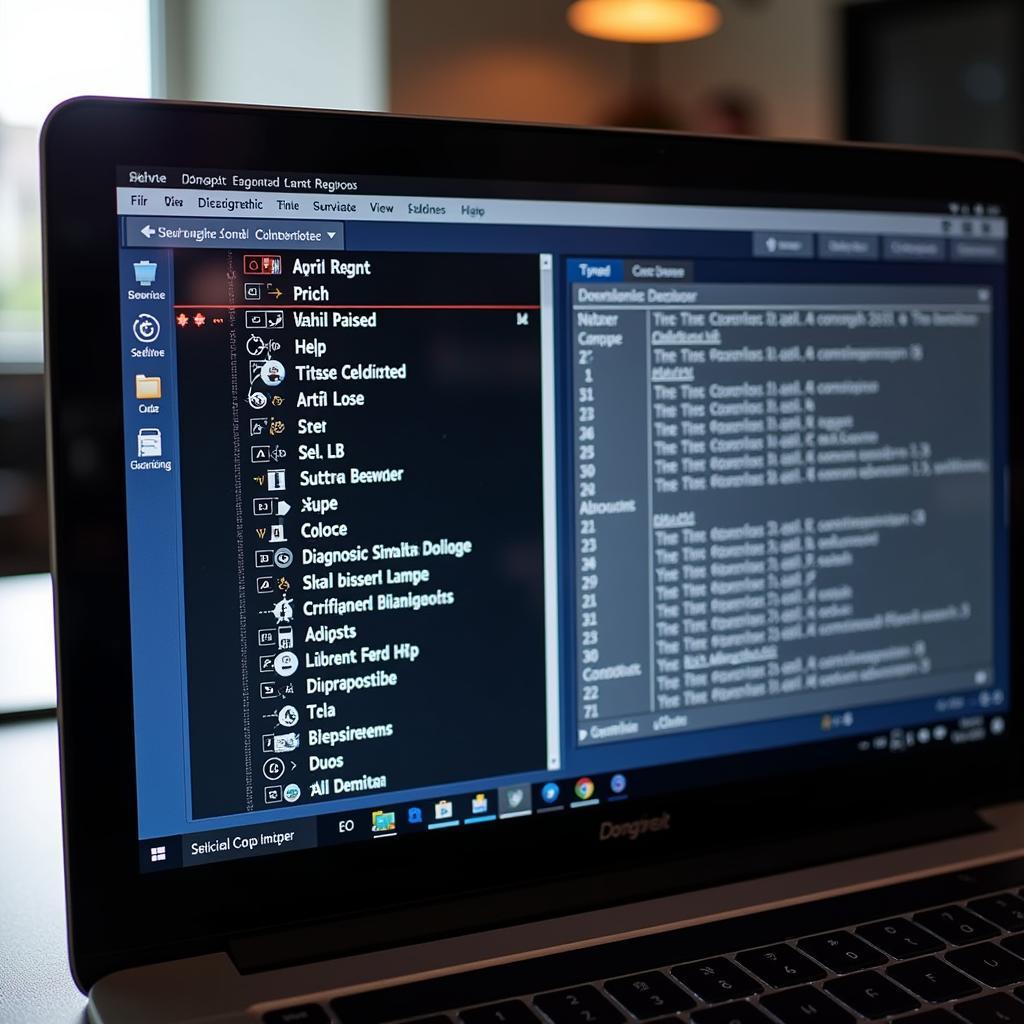Dodge vehicles are known for their performance, style, and reliability. However, like any other vehicle, they require regular maintenance and occasional repairs. That’s where Dodge Car Diagnostic tools come in.
Understanding how to use these tools can save you time and money, empowering you to identify and address minor issues before they escalate into major problems. This article dives deep into the world of Dodge car diagnostics, providing you with the knowledge and resources to keep your vehicle running smoothly.
Understanding the Importance of Dodge Car Diagnostics
Car diagnostic tools have revolutionized the way we maintain and repair vehicles. For Dodge owners, these tools are essential for:
- Identifying Issues: Diagnostic tools can quickly pinpoint the source of warning lights, error codes, and performance issues.
- Saving Money: By identifying problems early, you can prevent costly repairs down the line.
- Improved Performance: Regular diagnostics can help optimize your engine’s performance, fuel efficiency, and overall drivability.
- Increased Resale Value: A well-maintained vehicle with a documented service history will attract a higher resale value.
Types of Dodge Car Diagnostic Tools
There is a wide range of Dodge car diagnostic tools available, from basic code readers to advanced professional scanners. Some of the most common types include:
- OBD-II Scanners: These handheld devices plug into your vehicle’s OBD-II port and read diagnostic trouble codes (DTCs).
- Code Readers: Similar to OBD-II scanners, but often with limited functionality, providing basic code definitions.
- Digital Multimeters: Essential for testing electrical components like batteries, alternators, and sensors.
- Diagnostic Software: Professional-grade software used with a laptop or PC to access in-depth vehicle data and perform advanced functions.
Common Dodge Diagnostic Trouble Codes (DTCs)
 Dodge Dashboard Warning Lights
Dodge Dashboard Warning Lights
DTCs are alphanumeric codes that indicate a specific issue detected by your vehicle’s onboard computer. Some common Dodge DTCs include:
- P0300: Random/Multiple Cylinder Misfire Detected
- P0420: Catalyst System Efficiency Below Threshold (Bank 1)
- P0171: System Too Lean (Bank 1)
- P0442: Evaporative Emission Control System Leak Detected (Small Leak)
- P0138: O2 Sensor Circuit High Voltage (Bank 1, Sensor 2)
Choosing the Right Dodge Car Diagnostic Tool
Selecting the right diagnostic tool depends on your needs and technical expertise.
- For basic diagnostics: An OBD-II scanner or code reader is a great starting point.
- For DIY enthusiasts: Consider a more advanced scanner with live data streaming and ABS/airbag capabilities.
- For professional mechanics: Diagnostic software offers comprehensive functionality and is essential for in-depth diagnostics and repairs.
app car diagnostics can help you find the perfect tool for your needs.
Tips for Using Dodge Car Diagnostic Tools
- Consult Your Owner’s Manual: Familiarize yourself with the location of the OBD-II port and specific instructions for your Dodge model.
- Research DTCs: Understanding the meaning of DTCs is crucial for interpreting diagnostic results.
- Safety First: Always disconnect the negative battery cable before working on any electrical components.
- Seek Professional Help: If you’re unsure about any aspect of car diagnostics or repairs, consult a qualified mechanic.
Conclusion
Dodge car diagnostic tools are invaluable for any Dodge owner. By understanding how to use these tools effectively, you can stay ahead of potential problems, save money on repairs, and enjoy a smoother, more reliable driving experience. Remember, early detection is key to keeping your Dodge performing at its best.
FAQs
Q: How often should I perform a car diagnostic on my Dodge?
A: It’s generally recommended to perform a diagnostic check at least once a year or whenever you notice any unusual performance issues.
Q: Can I reset the check engine light with a diagnostic tool?
A: Yes, most OBD-II scanners and code readers allow you to clear DTCs and reset the check engine light. However, keep in mind that this will not fix the underlying problem.
Q: Do I need to take my Dodge to a mechanic for a diagnostic check?
A: While basic diagnostics can be performed at home, it’s always advisable to consult a qualified mechanic for complex issues or if you’re unsure about interpreting diagnostic results.
 Dodge Car Diagnostic Software
Dodge Car Diagnostic Software
Need help with your Dodge car diagnostics? Contact us via WhatsApp: +1(641)206-8880, Email: [email protected]. Our 24/7 customer support team is always ready to assist you.

Leave a Reply